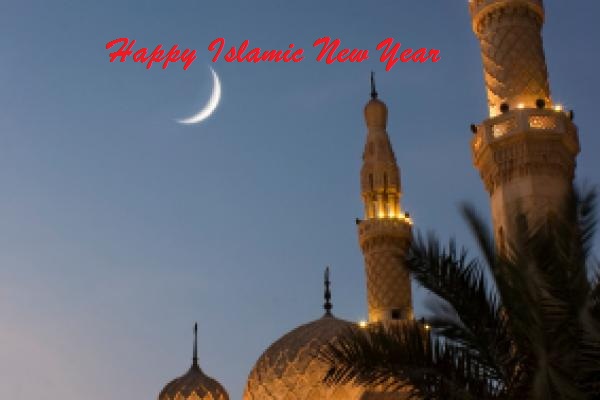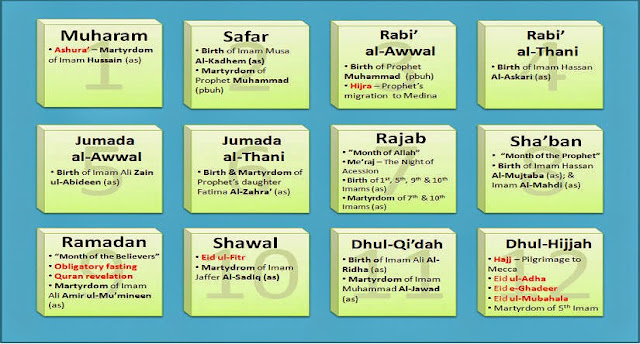




The Islamic calendar, Muslim calendar or Hijri calendar (AH) is a lunar calendar consisting of 12 months in a year of 354 days. The Islamic lunar calendar (also referred to as Hijri calendar) is a purely lunar calendar.
It contains 12 months that are based on the phases of the moon. Each lunar month is approximately 29.53 solar days. Therefore, the Islamic calendar is shorter than the Gregorian calendar. 12 lunar months is about 12 x 29.53=354.36 days (10 to 11 days shorter than the solar calendar). This why you may have noticed that the month of Ramadan and the time of Hajj gets earlier each year.
The Islamic lunar calendar, was first introduced in 638 AD by the second Caliph (Khalifa in Arabic), `Umar ibn Al-Khattab. The starting point of the calendar however was set to about sixteen years earlier, to mark the Hijrah — i.e. the time of emigration of the prophet Muhammad from Mecca to Medina. The word hijrah means to leave a place to seek sancturary or freedom from persecution or freedom of religion (or any other purpose). The emigration to Medina was a historic event, as it marked the turning point from persecution to freedom and acceptance of Submission (Islam in Arabic).
The actual starting date for the Calendar was chosen to be the first day of the first month (1 Muharram) of the year of the Hijrah. The Islamic (Hijri) calendar is usually abbreviated A.H. in Western languages (similar to A.D. used to mark the Christian calendar). Muharram 1, 1 A.H. corresponds to July 16, 622 A.D.
- Muharram
- Safar
- Rabi-ul-Awwal
- Rabi-ul-Aakhir
- Jumada-al-Oolaa
- Jumada-al-Aakhirah
- Rajab
- Sha'ban
- Ramadhan or Ramzan
- Shawwal
- Zul-Qa'dah
- Zul-Hijjah




No comments:
Post a Comment